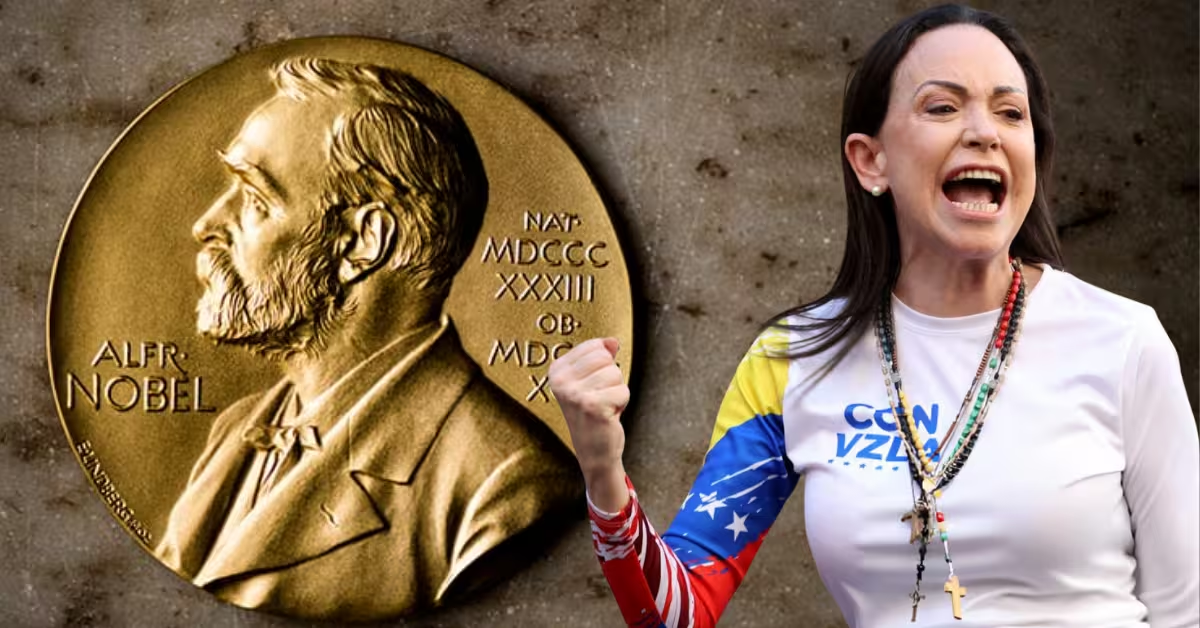María Corina Machado (b. 1967, Caracas) is a Venezuelan engineer-turned-politician who became one of Latin America’s most visible pro-democracy leaders. After early work in civil society—most notably co-founding the watchdog group Súmate—she entered the National Assembly (2011–2014), where she pressed for electoral integrity and civil liberties under the increasingly authoritarian rule of Hugo Chávez and then Nicolás Maduro.
Her profile rose again during the 2014 protest wave, after which authorities moved to sideline her from formal politics. Through a mix of party organizing (Vente Venezuela), coalition-building, and relentless public advocacy, she came to personify a strategy of nonviolent, rules-based transition.
The modern arc of her career pivots on 2022–2025. Machado campaigned across the country ahead of the opposition’s 2023 presidential primary and won decisively—only to be barred from the ballot by Venezuela’s institutions, a move widely condemned abroad.
Rather than retreat, she reorganized the coalition, supported a stand-in candidacy, and continued national mobilization while many allies faced arrest or exile. By 2024 she was garnering major international recognition (including European human-rights honors), and by 2025 she was operating largely in hiding inside Venezuela, moving discreetly amid credible security threats.
The secrecy around her whereabouts underscored both the risks facing dissidents and the resilience of the civic networks sustaining her movement.
On October 10, 2025, the Norwegian Nobel Committee awarded Machado the Nobel Peace Prize, praising “tireless work promoting democratic rights for the people of Venezuela” and her struggle for “a just and peaceful transition from dictatorship to democracy.”
The official citation framed her as “a brave and committed champion of peace” and “one of the most extraordinary examples of civilian courage in Latin America in recent times.” For supporters, the award validated decades of patient organizing under duress; for observers, it located “peace” in the institutions and processes that make nonviolent political change possible.
The decision also amplified scrutiny of Caracas, as global outlets highlighted both the symbolism of the prize and the practical question of whether Machado could safely travel to Oslo for the December 10 ceremony. (
Key milestones of María Corina Machado:
- 2001–2010: Co-founds and leads Súmate, pioneering citizen election monitoring.
- 2011–2014: Serves in the National Assembly; expelled amid 2014 unrest and mounting repression.
- 2023: Wins opposition primary by a landslide; subsequently disqualified by authorities.
- 2024: Receives major international rights awards, cementing her global standing.
- 2025: Operates largely in hiding; named Nobel Peace Prize laureate with language centering democratic rights and nonviolent transition.
Taken together, Machado’s biography reads as a study in civic endurance: building coalitions, insisting on verifiable elections, absorbing state pressure, and translating domestic courage into international leverage—now magnified by the Nobel’s moral authority. (

